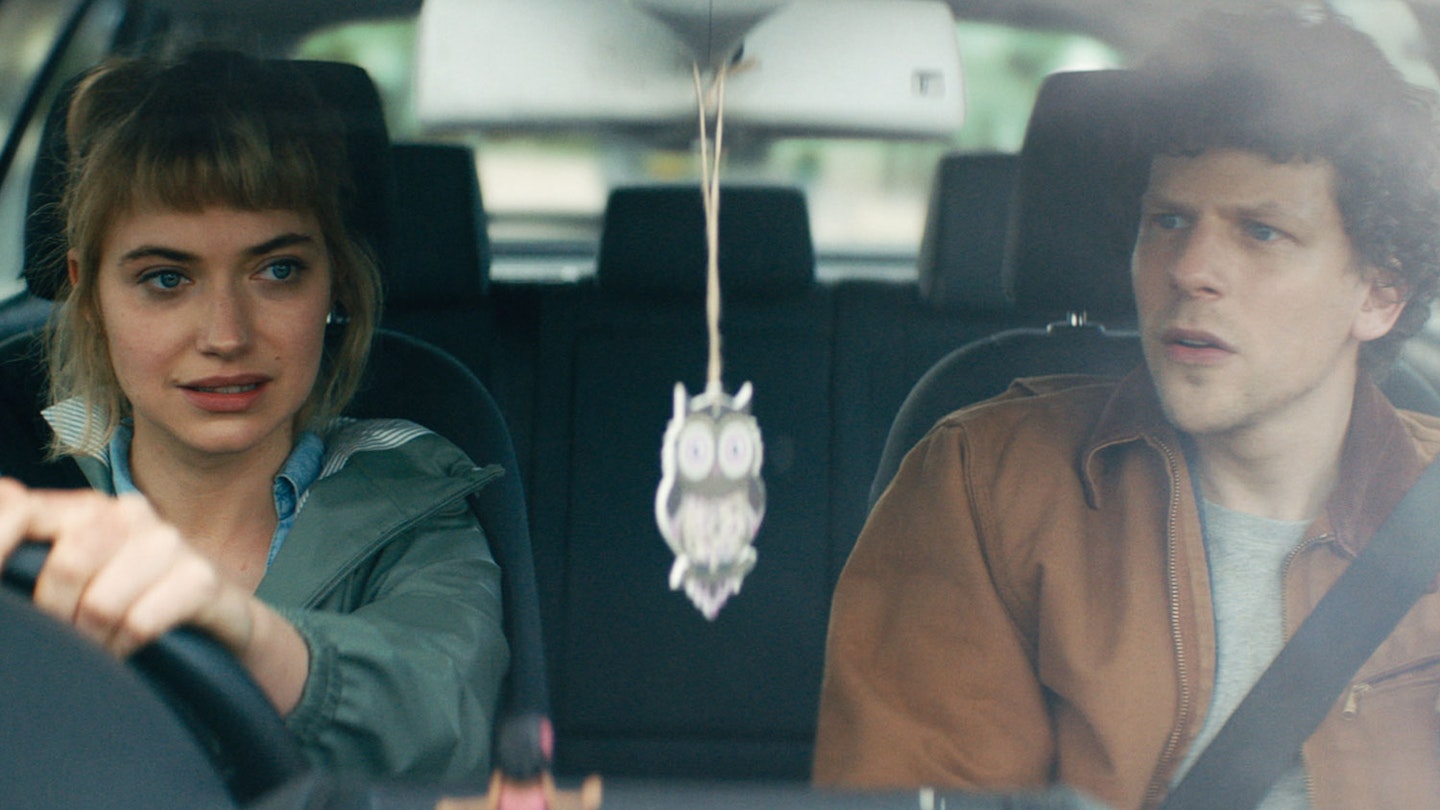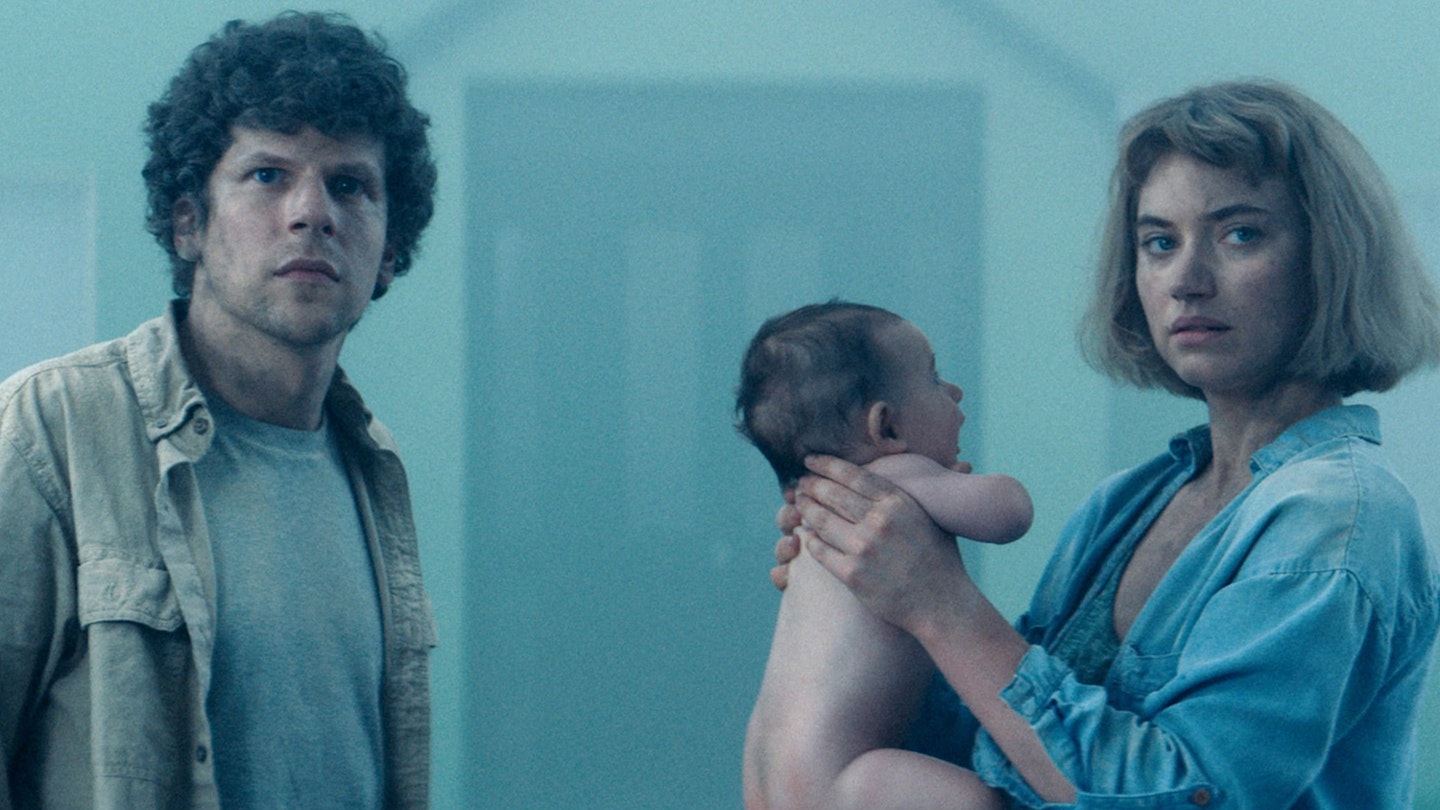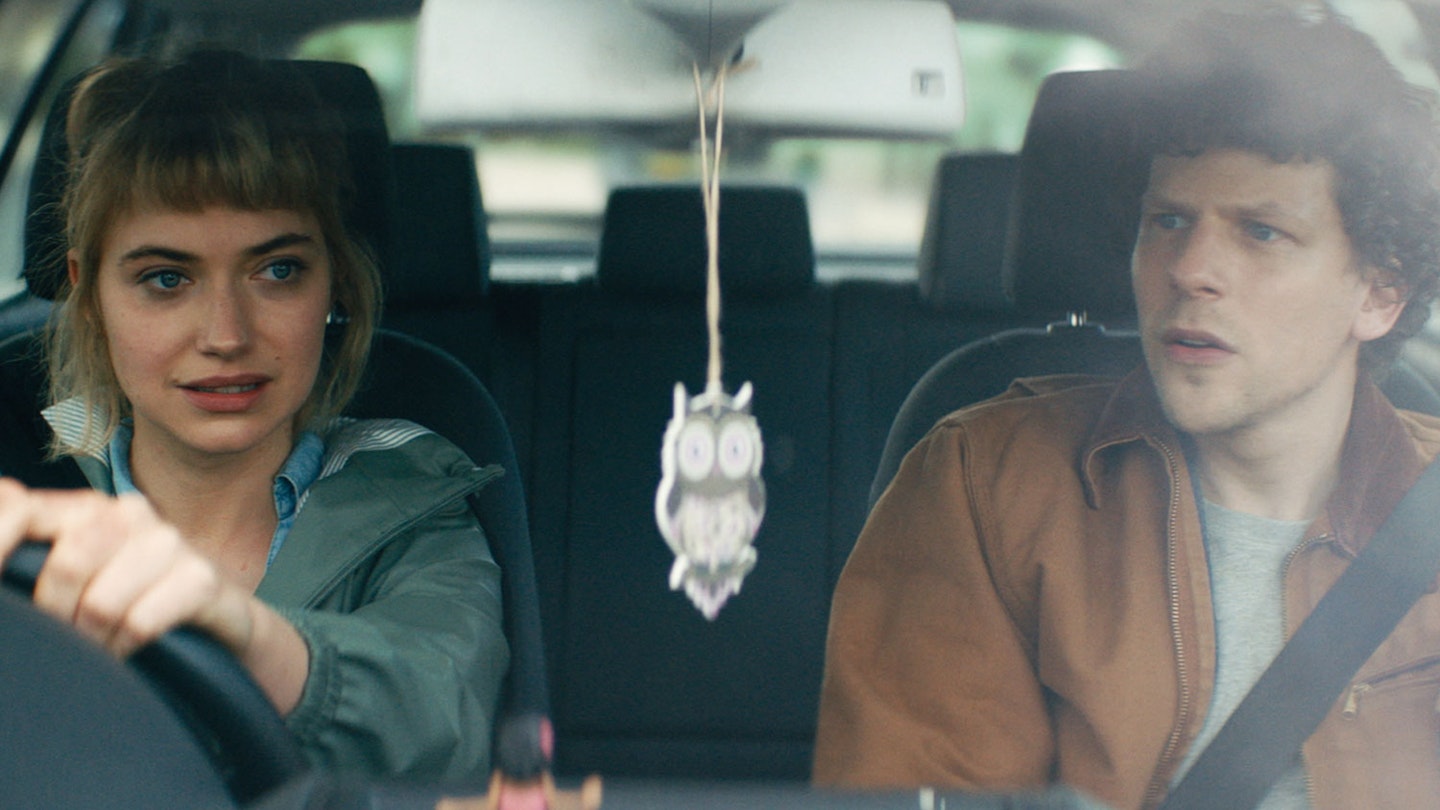Director Lorcan Finnegan and writer Garret Shanley’s second feature together doesn’t take long to reach a strange, damning assessment of the housing market, as Gemma (Imogen Poots) and her fiancé Tom (Jesse Eisenberg) are strong-armed into a situation they can’t escape simply through a man’s (poor) impersonation of friendly politeness. The estate agent (Jonathan Aris) leads them into a new housing development called ‘Yonder’, a sea of identical, pastel-green homes, with a canned, artificial feeling to every interior space. Even the sky above their heads looks like it came prefabricated. From here Vivarium proceeds as a grotesque parody of human ritual that leans into artificiality, in a manner that might fit in with Yorgos Lanthimos’ The Lobster or The Killing Of A Sacred Deer.

Like the latter film, the focus of the horror lies in the domestic space, as the couple are given no discernible way out of the labyrinthine neighbourhood other than to follow the mysterious order: “Raise the child.” The child in question is a rapidly ageing “creepy little mutant” boy (played by Senan Jennings, then Eanna Hardwicke) dressed like an accountant, who learns by mimicking the couple’s actions, and mostly communicates via screaming at them.
The point is mostly made about halfway through the film’s already brief running time. It makes up the prolonged length with some odd, unpredictable set-pieces and sharp visual language, which becomes the film’s saving grace as the dialogue is often superfluous and rarely illuminating. It’s by the grace of Eisenberg and Poots’ performances that the film holds together; the fairly insular proceedings land entirely on their shoulders as they sell the couple’s comfortable familiarity with each other turning stagnant, and then toxic. This, and their reactions to the world in which they’re trapped, are what’s most interesting, the film more effective in ruthlessness than sentimentality.



